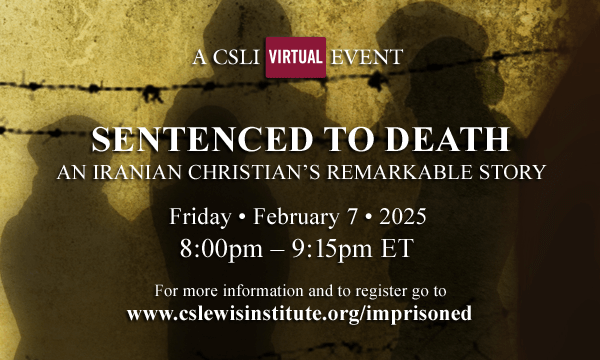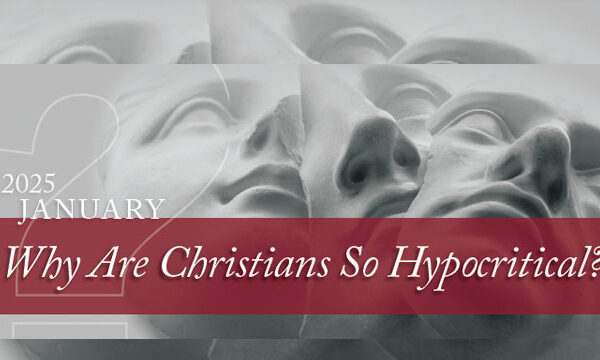Back to series


C.S. Lewis's Seven Key Ideas
I have heard it said that many well-known thinkers have only two or three key ideas that they develop from various angles throughout their lives. It might be asked: What are C.S. Lewis's key ideas? I have chosen seven to summarize in this essay. You can click on the words in bold to get a further development of these ideas. The seven I have chosen are:
- Chronological Snobbery
- Desire
- Imagination
- Objective Values vs. Relativism
- Myth
- Immortality
- Comprehensiveness
One obstacle that C.S. Lewis had to overcome was what he called his "chronological snobbery." By that he meant the assumption that whatever has gone out of date is thereby discredited. For instance, people might ask, "What does a 2,000-year-old faith have to do with me?" One of Lewis's friends helped him to ask about ideas that seemed outdated. Why did an idea go out of date and was it ever refuted? If so, where, by whom, and how conclusively? C.S. Lewis later argued that reading old books helped provide a corrective to the blindness induced by our own age. We ought, he maintained, to read one old book for every new one or if that's too much, then one old one for every three new ones. Otherwise, we may be easily enslaved to the ideas of the recent past.
2. Desire
C.S. Lewis believed that we were made for "joy." God is the great "hedonist." He provides things for humans to do all day long, like "sleeping, eating, drinking, making love, playing, praying, working." But, he also believed that to focus on these "second things" and neglect "first things" such as worshiping and loving God was to be "too easily pleased." He wrote:
Our Lord finds our desires not too strong, but too weak. We are half-hearted creatures, fooling about with drink sex and ambition when infinite joy is offered us, like an ignorant child who wants to go on making mud pies in a slum because he cannot imagine what is meant by the offer of a holiday at the sea. We are far too easily pleased.
Lewis's argument for God's existence from the nature of our desires is fascinating and thought provoking. Just as the existence of hunger points to satisfaction in the reality of food, thirst in drink, sexual desire in sex, drowsiness in sleep (etc) so other "natural" desires: spiritual hunger, desire for supernatural encounters, aspirations to immortality (and so on) act as cosmic pointers to real supernatural satisfaction.
3. Imagination
C.S. Lewis viewed reason as the natural "organ of truth" and imagination as the "organ of meaning." He believed that the only way we grasp any idea with clarity is if we have an image associated with it. He was able to work with equal facility in philosophical arguments or in writing fiction. Lewis uses images to illustrate his apologetics and communicates profound ideas in his fiction. For instance, he writes a great critique of relativism in Abolition of Man and communicates the same ideas in the novel, That Hideous Strength.
Imagination acted as a cosmic pointer to Lewis. Once, during his years of unbelief, he was going on a train ride and bought a book (George MacDonald's Phantastes). While he was reading, he said that a "new quality" touched his life and his imagination was "baptized." The quality was later described by Lewis to be "holiness." Although it took a while for the rest of him to catch up (reason-satisfied; will-submitted), it was an important first step. Having had this early experience, it is not surprising that he thought that others might feel a similar thing. He felt that his Narnia series might sneak past "watchful dragons" of religiosity enabling us to see old things in new ways.
C.S. Lewis argued for objective truth and morality against the relativism of his (and our) day. He felt that establishing the reality of truth and goodness was an essential preparation for the Gospel. He wrote:
For my part, I believe we ought to work not only at spreading the gospel (that certainly) but also at a certain preparation for the gospel. It is necessary to recall many to the Law of Nature before we talk about God. For Christ promises forgiveness of sins: But what is that to those who since they do not know the Law of Nature, do not know that they have sinned? Who will take the medicine unless he knows he is in the grip of disease? Moral relativity is the enemy we have to overcome before we tackle atheism.
Lewis's arguments against relativism are set forth in Mere Christianity (Book I), Abolition of Man, and in numerous essays.
5. Myth
Early in C.S. Lewis's life he noticed the parallels between pagan myths and classic Christianity. In his education it was assumed that the pagan myths were false and Christianity true. Why was this religion--and this one alone--true? This is one factor that led to his unbelief.
He resolved the problem and wrote about myth in a number of places. A key to his resolution was the increased understanding that if God created the world in a certain way and the human mind with a definite structure, it is not surprising that patterns reoccur. The only question is, Are any of these myths truer than others or, more precisely, Are any of these myths also fact? He came to believe that Jesus was the "myth become fact."
Later he defined myth as an "unfocused gleam of divine truth falling on human imagination." Lewis discusses parallel mythologies in his book, Miracles, his novel, Till We Have Faces, and in other places.
6. Immortality
Walter Hooper (C.S. Lewis scholar) argues that C.S. Lewis's central idea was that all people are immortal. Lewis wrote: "There are no ordinary people. You have never met a mere mortal. Nations, cultures, arts, civilizations, these are mortal, and their life is to ours as the life of a gnat." Lewis manifested this belief by writing personally to everyone who wrote to him (usually handwritten letters) and giving away all the proceeds of his books.
Hooper tells the story of a time when he was with Lewis and they were talking about a man who was very boring. Hooper told Lewis that the man succeeded in interesting him by the very intensity of his boredom. Lewis replied, "Yes, but let us not forget that Our Lord might well have said, "As ye have done it unto one of the least of these my bores, you have done it to me." In fact, Lewis felt that it was sometimes his duty to visit and help such people.
Lewis also gives us glorious pictures of heaven. For instance, in my favorite of the Narnia Chronicles, The Last Battle, he portrays life in the higher country as infinite adventures with an infinitely creative God for all eternity. The last paragraph of The Last Battle says:
And for us this is the end of all the stories, and we can most truly say that they all lived happily ever after. But for them it was only the beginning of the real story. All their life in this world and all their adventures in Narnia had only been the cover and the title page: now at last they were beginning Chapter One of the Great Story which no one on earth has read: which goes on forever: in which every chapter is better than the one before.
7. Comprehensiveness
C.S. Lewis believed that Jesus was the way, the truth, and the life and that all truth pointed to Him. Lewis said: "I believe in Christianity as I believe the sun has risen, not only because I see it, but because by it I see everything else." He was influenced by G.K. Chesterton who maintained that we become convinced of a theory not just when something proves it but only when everything proves it. Lewis explored reason, imagination, fiction, non-fiction, art, philosophy, classic literature, and poetry finding shafts of light and following them back to the sun (Son).

Arthur W. Lindsley
Senior Fellow for Apologetics, CSLIArthur W. Lindsley is the Vice President of Theological Initiatives at the Institute for Faith, Works, & Economics. He has served at the C.S. Lewis Institute since 1987 both as President until 1998 and currently as Senior Fellows for Apologetics. Formerly, he was director of Educational Ministries at the Ligonier Valley Study Center, and Staff Specialist with the Coalition for Christian Outreach. He is the author of C.S. Lewis's Case for Christ, True Truth, Love: The Ultimate Apologetic, and co-author with R.C. Sproul and John Gerstner of Classical Apologetics, and has written numerous articles on theology, apologetics, C.S. Lewis, and the lives and works of many other authors and teachers. Art earned his M.Div. from Pittsburgh Theological Seminary and a Ph.D. in Religious Studies from the University of Pittsburgh.
 COPYRIGHT: This publication is published by C.S. Lewis Institute; 8001 Braddock Road, Suite 301; Springfield, VA 22151. Portions of the publication may be reproduced for noncommercial, local church or ministry use without prior permission. Electronic copies of the PDF files may be duplicated and transmitted via e-mail for personal and church use. Articles may not be modified without prior written permission of the Institute. For questions, contact the Institute: 703.914.5602 or email us.
COPYRIGHT: This publication is published by C.S. Lewis Institute; 8001 Braddock Road, Suite 301; Springfield, VA 22151. Portions of the publication may be reproduced for noncommercial, local church or ministry use without prior permission. Electronic copies of the PDF files may be duplicated and transmitted via e-mail for personal and church use. Articles may not be modified without prior written permission of the Institute. For questions, contact the Institute: 703.914.5602 or email us.
-
Recent Podcasts
From Anti-Christian to Pastor – Brian Smith’s Story
by Jana Harmon, Brian Smith on January 17, 2025Brian grew up in a small Georgia town...Read More
-
Time With God
by Aimee Riegert, J.I. Packer on January 10, 2025
-
Faith and Reason – Henare Whaanga’s Story
by Henare Whaanga, Jana Harmon on January 3, 2025
-
Recent Publications
Why Are Christians So Hypocritical?
by William L. Kynes on January 1, 2025Oh, the hypocrisy of those Christians—they talk so...Read More
-
How Artists and Their Art Can Point Us to the Creator
by Russ Ramsey on December 2, 2024
-
What about Jesus’s Childhood?
by Jim Phillips on December 1, 2024
0
All Booked
0.00
All Booked
0.00
All Booked
23931
GLOBAL EVENT: Sentenced to Death with Maryam Rostampour-Keller, 8:00PM ET
https://www.cslewisinstitute.org/?event=global-event-sentenced-to-death-with-maryam-rostampour-keller-800pm-et&event_date=2025-02-07®=1
https://www.paypal.com/cgi-bin/webscr
2025-02-07

Next coming event
Days
Hours
Minutes
Seconds
GLOBAL EVENT: Sentenced to Death with Maryam Rostampour-Keller, 8:00PM ET
On February 7, 2025 at 8:00 pmSpeakers

Arthur W. Lindsley
Senior Fellow for Apologetics, CSLI
Team Members

Arthur W. Lindsley
Senior Fellow for Apologetics, CSLIArthur W. Lindsley is the Vice President of Theological Initiatives at the Institute for Faith, Works, & Economics. He has served at the C.S. Lewis Institute since 1987 both as President until 1998 and currently as Senior Fellows for Apologetics. Formerly, he was director of Educational Ministries at the Ligonier Valley Study Center, and Staff Specialist with the Coalition for Christian Outreach. He is the author of C.S. Lewis's Case for Christ, True Truth, Love: The Ultimate Apologetic, and co-author with R.C. Sproul and John Gerstner of Classical Apologetics, and has written numerous articles on theology, apologetics, C.S. Lewis, and the lives and works of many other authors and teachers. Art earned his M.Div. from Pittsburgh Theological Seminary and a Ph.D. in Religious Studies from the University of Pittsburgh.




